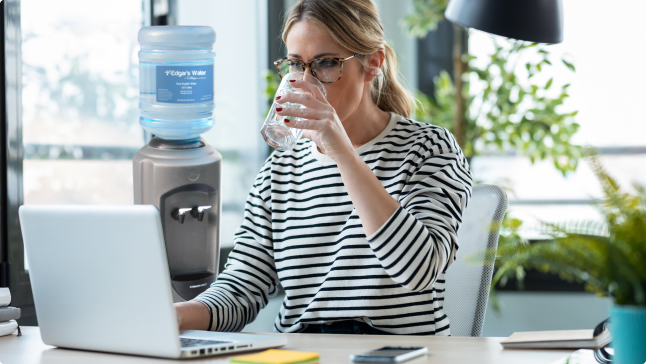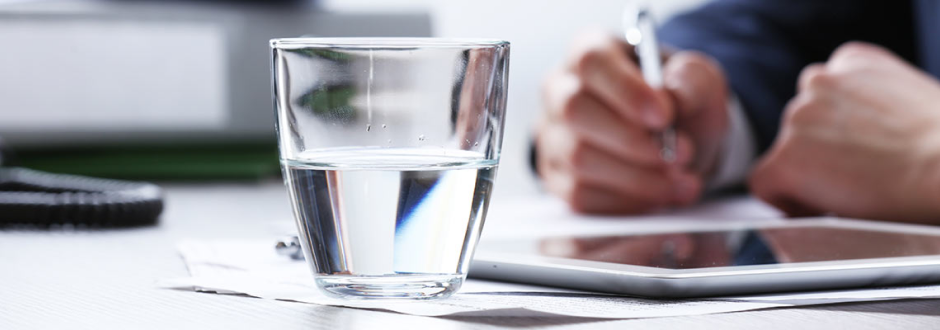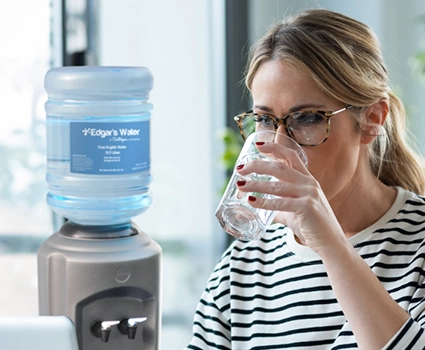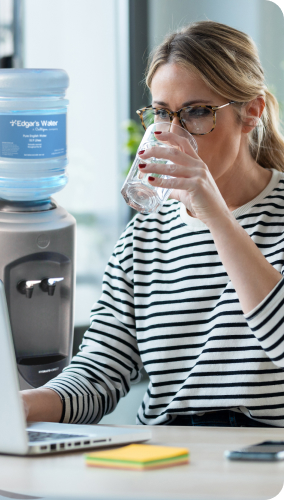

60% of the human body consists of water, so it is no surprise that hydration is important for maintaining good physical health and wellbeing. Water would be the best choice, however, tea & coffee, low-fat milk, and sugar-free drinks all count.
We’re all guilty of not drinking enough water from time to time, and many wait until they are thirsty to get a drink of water. However, if you’re feeling thirsty, you’re already dehydrated.
Other symptoms of dehydration include:
- Headaches
- Dry Mouth
- Excessive sweating
- Cramping
- Dizziness
- Fatigue
Read below to see what else water is integral for in the upkeep of our health and wellbeing, and some tips on how you can manage to meet the recommended water intake.

Hydration’s role in:
Weight Loss
Keeping hydrated can assist you in keeping your weight in check, as it gives a sense of fullness, aiding you in avoiding the urge to snack and eat food you don’t necessarily need. Not only that, but it can also help increase your metabolism. A study on women found that overweight people who drank excessive amounts of water found that they did indeed lose more weight. In fact, a 2016 study also found that those who increased their daily water intake by 1% ended up consuming fewer calories, aiding their weight loss.
Your Brain and Mental Wellbeing
Studies have shown that being just 1% dehydrated can lead to a 5% decrease in cognitive function, and 2% can result in short term memory loss. To keep your brain energised and oxygenated, drinking enough water is a must. Water is also integral for the production of serotonin, a mood stabiliser, thus dehydration can result in a drop in mood, as well as put you more at risk for depression.
Headaches
There are many things that can cause headaches, such as stress or viral infections, however, a much more typical cause is dehydration. Dehydration can result in mild, dull, headaches, to severe migraines, so it is well worth keeping hydrated to keep those at bay. The pain can occur all over the head, if you’re experiencing headaches, increase your fluid intake and see if this helps.
Joint Pain
We’ve already established that the majority of our bodies consist of water, however, our joints in particular consist of approximately 80% water. It acts as a lubricant for our joints, as well as 70-80% of our cartilage consisting of water. Dehydration affects the friction reduction in the cartilage, leaving you at risk to develop joint pain.
Your Kidney health
Kidney stones consist of clusters of minerals that can sometimes form in your urinary tract and can be very painful. Ensuring you’re hydrated can aid in diluting the concentration of minerals and make kidney stones less likely.Water can also flush harmful bacteria from your bladder which can help prevent urinary tract infections (UTIs).
Heart Health
When you drink less water, your blood volume decreases, which causes your heart to beat faster to compensate, which increases your blood pressure. Dehydration also causes your blood to retain more sodium, resulting in the thickening of your blood, making it harder for your heart to pump it around your body, inhibiting the distribution of oxygen to your muscles and organs.

Top tips on how to stay hydrated
Knowing how much water we need to drink each day isn’t necessarily easy to put into practice. Busy lives and schedules can get in the way, and before we know it, it’s time to go to sleep and you’ve only drank one glass of water.What you don’t want to do is drink most of the daily amount before bed, just to meet the recommendation. You’ll end up waking up all night to use the bathroom, which will cause sleep issues.
Here are some tips on how to stay on top of your hydration:
- Set regular reminders on your phone throughout the day
- Start each day with a glass of water
- Drink a full glass with every meal
- Attach drinking water to regular activities so you don’t forget
- Use technology like an app
- Write down a list on your phone or paper and tick off when you’ve drank each glass
- Take a reusable bottle with you everywhere you go
- Get a reusable bottle big enough for your daily allowance and ensure you drink it all throughout the day
We hope this was helpful for you. Get in touch if you have any questions.
Continue your reading


